Publications
Articles, publications, books, tools and multimedia features from the U.S. Institute of Peace provide the latest news, analysis, research findings, practitioner guides and reports, all related to the conflict zones and issues that are at the center of the Institute’s work to prevent and reduce violent conflict.
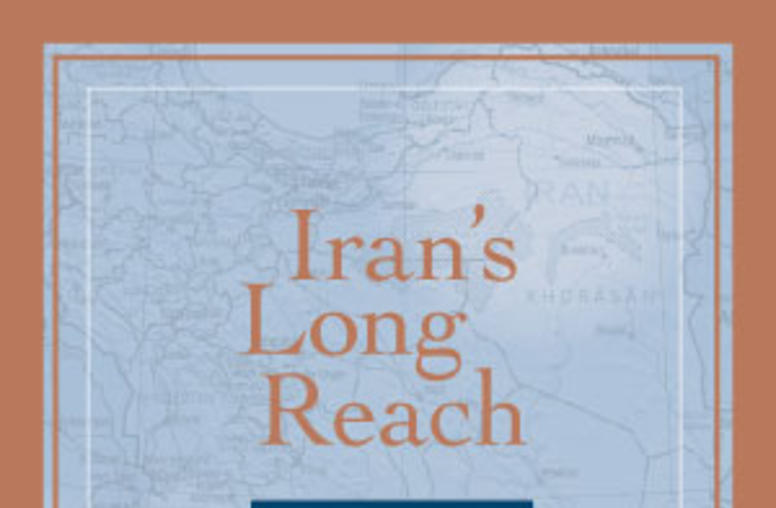
Iran's Long Reach
As the third book in the series from the Institute’s Muslim World Initiative on pivotal states in the Muslim world, this lucid and timely volume sheds much-needed light on Iran’s strikingly complex political system and foreign policy and its central role in the region.
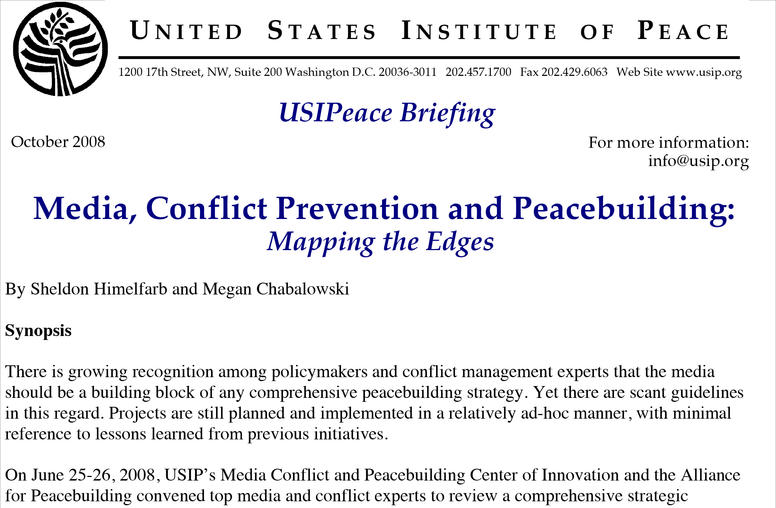
Media, Conflict Prevention and Peacebuilding: Mapping the Edges
There is growing recognition among policymakers and conflict management experts that the media should be a building block of any comprehensive peacebuilding strategy. Yet there are scant guidelines in this regard. Projects are still planned and implemented in a relatively ad-hoc manner, with minimal reference to lessons learned from previous initiatives. This USIP Peacebriefing examines the field.
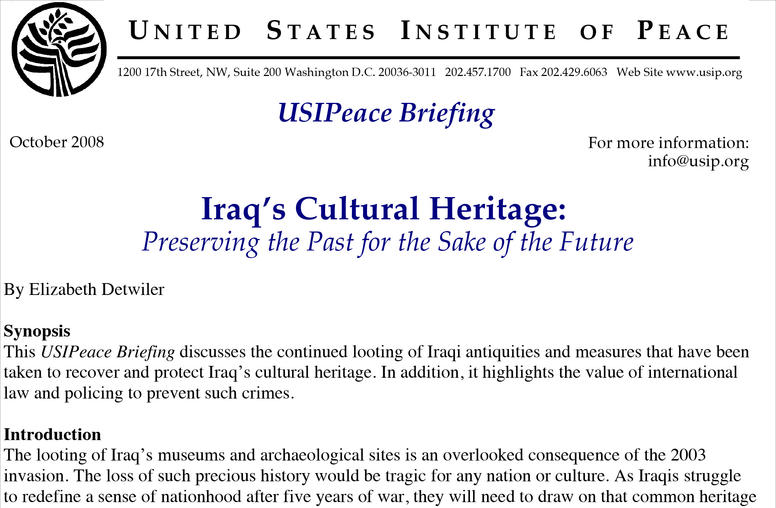
Iraq’s Cultural Heritage: Preserving the Past for the Sake of the Future
The looting of Iraq’s museums and archaeological sites is an overlooked consequence of the 2003 invasion. The loss of such precious history would be tragic for any nation or culture. As Iraqis struggle to redefine a sense of nationhood after five years of war, they will need to draw on that common heritage to reconstruct their communities.
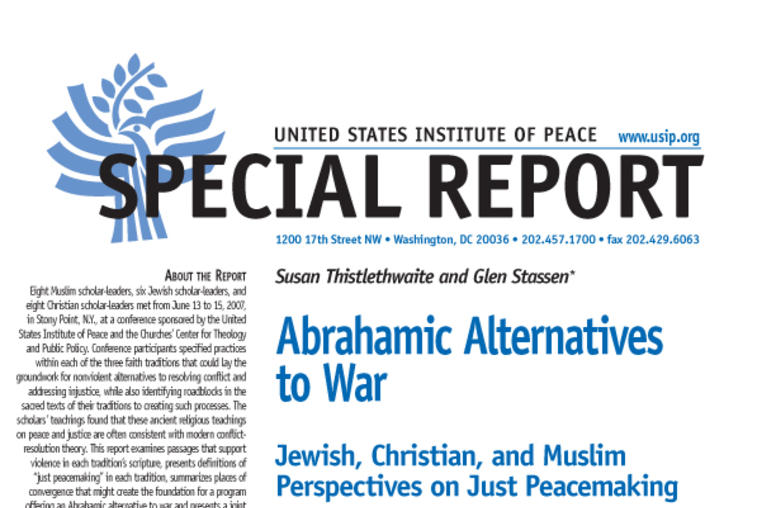
Abrahamic Alternatives to War: Jewish, Christian, and Muslim Perspectives on Just Peacemaking
Eight Muslim scholar-leaders, six Jewish scholar-leaders, and eight Christian scholar-leaders met from June 13 to 15, 2007, in Stony Point, N.Y., at a conference sponsored by the United States Institute of Peace and the Churches’ Center for Theology and Public Policy. The purpose of the conference, titled Alternatives to War, was to specify practices within each of the three Abrahamic traditions that could lay the groundwork for a nonviolent program to resolve global conflict and address inju...
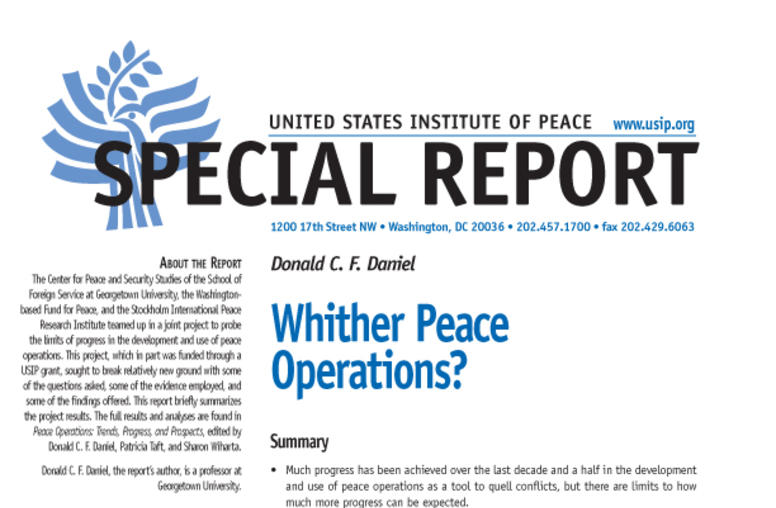
Whither Peace Operations?
Peace operations have undergone several evolutions since the first United Nations–administered peace mission in 1948. A characteristic feature of the most recent evolution, which began about a decade ago, is that today peace operations are more broadly accepted as a tool for contending with destabilizing events in all regions of the globe.
On the Issues: Georgia
Recent violence between Russia and Georgia, preceded by Georgia's hostility with South Ossetia and Abkhazia, has led many to reconsider emerging paradigms in conflict analysis and conflict management. Over the past decade, USIP has produced a series of resources and facilitated a number of events and trainings related to the region.
On the Issues: Philippines
In the Philippines, a peace agreement—eleven years in the making—between the government and the Moro Islamic Liberation Front is now in question because of a Supreme Court decision. Renewed violence has broken out. Eugene Martin, who directed USIP's Philippine Facilitation Project between 2003 and 2007, discusses the situation.
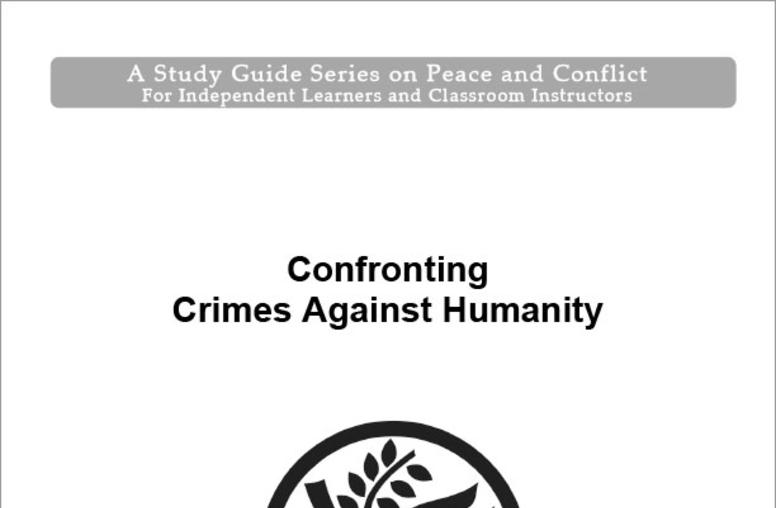
Confronting Crimes Against Humanity
Darfur, East Timor, Rwanda, Bosnia—these are just some of the mass atrocities that have occurred since the 1990s. But that period also saw the beginning of a series of efforts to confront crimes against humanity. This study guide describes the key elements of humanitarian intervention and the "responsibility to protect," as well as methods for protecting civilians.
On the Issues: North Korea
Recent reports on the ill health of North Korean leader Kim Jong Il have renewed speculation over his succession and the country’s future, while chronic food shortages and stalled denuclearization activities complicate the situation. In this On the Issues, Senior Research Associate and North Korea specialist John S. Park explores these issues.
On the Issues: Pakistan
The resignation of Pakistani president Pervez Musharraf — once a key Washington ally — marks a new stage in the country’s often volatile politics. Institute specialists Alex Thier and Qamar-ul Huda discuss a host of challenges on Pakistan's political scene.